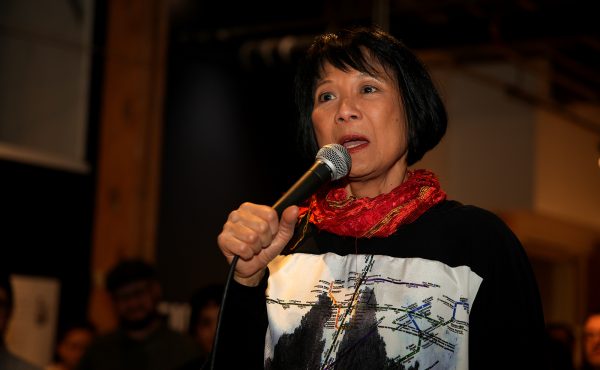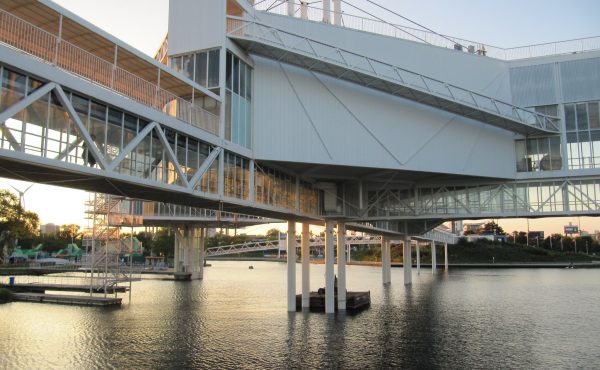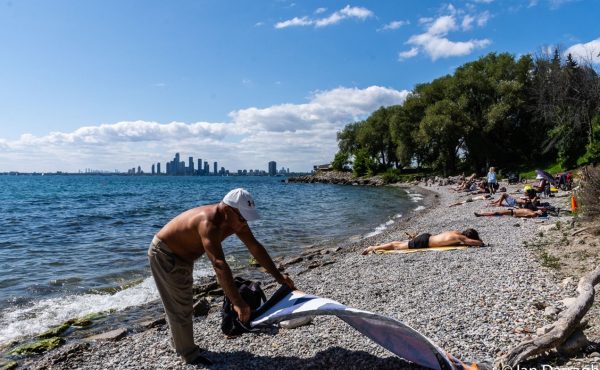
Here’s an awkward footnote to the latest gambit in Rob Ford’s campaign to undo everything his predecessor accomplished in office.
Last week, the mayor’s Etobicoke ally Vince Crisanti launched a bid to kill off the City’s priority neighbourhoods strategy. The label, affixed to 13 particularly troubled areas, is a stigma that drives away investment and “divides Torontonians,” Crisanti said in a letter to the Community Development and Recreation Committee, and so the designation must be abandoned. He insists this move isn’t about funding. But the reality is that once the City ceases to focus on communities that have been historically short-changed for public services, the money will stop flowing.
Which brings me back, as always, to football.
My question is this: how did Argo legend Michael “Pinball” Clemons react to Crisanti’s ploy? For the past five years, Clemons has chaired the Youth Challenge Fund (YCF), which has raised over $42 million for 111 programs and facilities geared specifically at young people living in those 13 priority neighbourhoods. Clemons, who is also the Argos’ vice-chair, appears to have been untroubled by the stigma bogeyman: he focused on solving real problems instead of cosmetic ones.
Too bad he didn’t run for mayor.
What’s important here is not just Clemons’ response, but that of the hefty fundraising team he fronts.
So far, Ford’s targets of choice have been mewling downtown progressives and their silly urban causes — bikes, bridges, gays, housing, and other sources of money-wasting nonsense.
In the main, the brothers Ford could fight these battles without unduly provoking The Beach, North Toronto, Rosedale, Moore Park, Forest Hill, High Park and the city’s other bastions of upper-middle class (and beyond) respectability.
But I’d suggest that Ford Nation’s passive aggressive attack on the City’s priority neighbourhood strategy is akin to jamming a stick into a hornet’s nest.
While these affluent communities are well insulated from the poverty afflicting the 13 hardscrabble neighbourhoods, they contribute plenty of green to social service charities doing good work in the same. Toronto’s patrons of architecture and culture may be in short supply, but there’s plenty of noblese oblige in those leafy, midtown census tracts.
Indeed, the United Way of Greater Toronto (which is a lead partner of the YCF) raises well over $100 million every year because it knows exactly how to tap into all those guilt-ridden middle-class consciences.
One especially successful tactic has been to show all those donors and potential donors where in this sprawling city the need exists. The much-lauded 2004 Poverty by Postal Code report stripped the abstraction out of economic scarcity by identifying precisely where the poor lived, and, too often, died. This mode of analysis certainly wasn’t done for cynical reasons, but the benefits have been enormous: In 2002, the UWGT raised $75 million. In 2010, it grossed $150 million – a 100% increase over eight years. (The number fell somewhat in 2011, likely because of economic uncertainty.)
There’s no question that by targeting high-needs communities, the UWGT tapped into a much richer vein of philanthropic capital than existed before.
So when Ford and his emissaries declare the priority neighbourhood strategy has been an abject failure, they’re telling all those well-heeled donors that they’ve been taken for chumps by the UWGT’s snake oil salesmen.
More perplexingly, the mayor’s team has also insinuated that the city’s best-known football hero has failed badly in his attempts to improve the quality of life for Toronto’s poorest youth. That’s a pretty ballsy message.
Kind of makes one wonder what Clemons’s next play is going to be.





4 comments
Mr. Clemons should run for mayor. He could lead those “hardscrabble neighbourhoods” out of their socio-economic mire and the result would be good for all of Toronto.
I’d vote for Pinball. His name alone gets my vote.
What’s interesting is that it is those in said priority neighbourhoods who voted for Ford in the first place. We’re a little more than 6 months into his term, and he is doing a fantastic job to not only piss off those who didn’t vote for him, but those who did.
Assuming he makes it 5 years, I am looking forward to seeing just how badly he will bomb in the next election.
He’ll only lose if the competition is poorly-organized and without populist appeal.